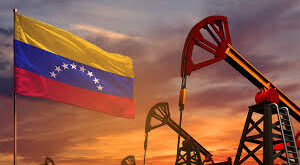Officials said the armed faction called the Benghazi Defense Brigades (BDB) had entered two major Libyan oil ports at Es Sider and Ras Lanuf late on Friday after pushing back Libyan National Army (LNA) forces loyal to renegade general. Khalifa Haftar. who were in control of the facilities.
Colonel Ahmed al-Mesmari. the LNA spokesman. said Saturday that BDF forces had taken control of the main airfield in the oil port of Ras Lanuf after his forces had to stop their operations against the assailants to avoid major damage to the oil terminals.
At least nine of the LNA forces were allegedly killed and eight others sustained injuries in the clashes.
The spokesman added that al-Qaeda-affiliated militants and operatives had been involved in the Friday attacks on the Libyan oil terminals. which has a potential production capacity of about 600.000 barrels per day.
Meanwhile. the Libyan parliament condemned the assaults and placed the blame on the domestic Libyan warring sides and the foreign countries providing military and financial support for the al-Qaeda terrorist group.
The BDB had carried out a similar attack on the oil crescent in December last year. but were repelled by Haftar’s forces.
The armed group consists partly of fighters who were ousted from Benghazi by the eastern-based LNA forces. whose commander. Haftar. has been leading a campaign against Takfiri militants and other opponents for about three years.
A member of the Libyan National Army (LNA) aims his weapon during fighting at Daesh Takfiri terrorists in a southern district of Benghazi. on January 14. 2017 (Photo by AFP).
The North African country has had two rival governments since mid-2014. when militants overran the capital and forced the parliament to flee to the remote east.
The two governments reached a consensus on the formation of Government of National Accord (GNA) in December 2015. after months of UN-brokered talks in Tunisia and Morocco to restore order to the country. Libya. however. continues to be gripped by political strife and violence.
Haftar dominates a rival administration based in the east that continues to defy the GNA’s authority.
Libya has been the scene of increasing violence since 2011. when long-time dictator Muammar Gaddafi was toppled from power after a NATO military intervention. His ouster created a huge power vacuum in Libya. leading to chaos and emergence of numerous militant groups.
In addition to political rivalries. the rise of extremism and the presence of terrorist groups in the oil-rich country have also culminated in the deterioration of living conditions. including power cuts. exorbitant prices and security issues.

 Iran Energy News Oil, Gas, Petrochemical and Energy Field Specialized Channel
Iran Energy News Oil, Gas, Petrochemical and Energy Field Specialized Channel



